The Spanish Holocaust: Inquisition and Extermination in Twentieth-Century Spain
£3.70£12.30 (-70%)
Selected as the Sunday Times History Book of the Year for 2012, this is a meticulous work of scholarship from the foremost historian of 20th-century Spain.
The culmination of more than a decade of research, ‘The Spanish Holocaust’ seeks to reflect the intense horrors visited upon Spain during its ferocious civil war, the consequences of which still reverberate bitterly today.
The brutal, murderous persecution of Spaniards between 1936 and 1945 is a truth that should have been told long ago. Paul Preston here offers the first comprehensive picture of what he terms “the Spanish Holocaust”: mass extra-judicial murder of some 200,000 victims, cursory military trials, torture, the systematic abuse of women and children, sweeping imprisonment, the horrors of exile. Those culpable for crimes committed on both sides of the Civil War are named; their victims identified.
‘The Spanish Holocaust’ illuminates one of the darkest, least-known eras of modern European history.
Read more
Additional information
| Publisher | 1st edition (31 Jan. 2013), HarperPress |
|---|---|
| Language | English |
| Paperback | 736 pages |
| ISBN-10 | 9780006386957 |
| ISBN-13 | 978-0006386957 |
| Dimensions | 13 x 4.67 x 19.71 cm |

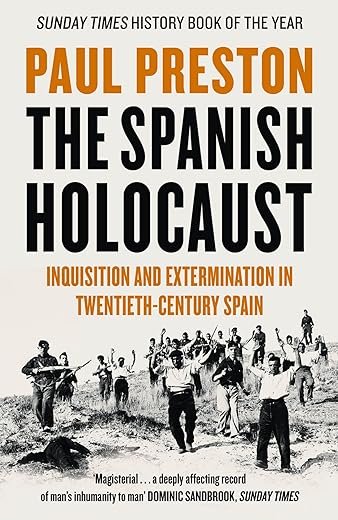
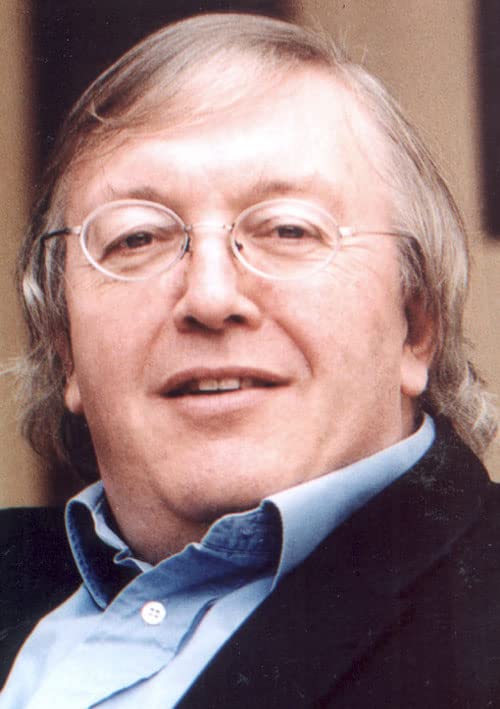
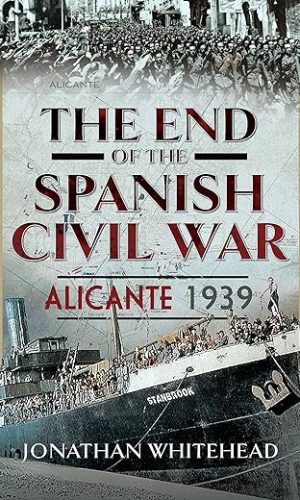

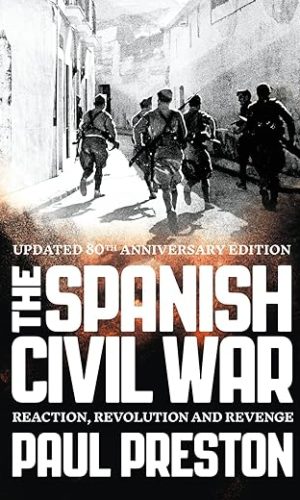
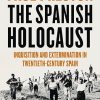
by dm4244
An immensely detailed work of historical research. I have four books on the subject and this is by far the best. It provides the grim details, many explanatory notes and you never get the feeling of it being an ‘overview’ in the same way other books on the Spanish civil war seem to be. If you really want to know what happened and why Spain is still dealing with it then this is the book to buy.
by I. Jones
I read this book while watching for the nth time Granada TV’s documentary series on the Spanish Civil War, which was first broadcast in 1983 and can still be found on YouTube. I’ve been interested in the Spanish Civil War since that Granada series was first broadcast, and I went through a period in the 90s and 00s when I read a mass of books about the civil war and other aspects of Spanish history. In 2004 my wife and I bought a house in Andalusia and for several years we spent a lot of time in Spain and we were often surprised that even then, 30 years after Franco’s death, no one wanted to talk about the civil war. There were no museums, no exhibitions, only a few scholars like Paul Preston keeping the flame alive.
The Granada series ends with an interview with an elderly Franco supporter. Throughout the series she was interviewed several times claiming that Franco stood for the Church, the family and traditional values and was a great man, but at the end she says her daughters had persuaded her to look at things from the other side and she had to admit that there was fault on both sides. That is Paul Preston’s basic premise. Some reviewers moan about left wing bias, but Preston does not do what some left wing historians do, which is to portray Republican atrocities as “spontaneous” and therefore less culpable than Franco’s more deliberate and organised use of terror. Instead Preston shows that many of the atrocities committed by the Left were not only well planned, they were also brutal and merciless and completely unjustified. One important point that Preston does make, however, is that Franco could get away with mass murder and still be described by the Daily Mail as “a gallant, Christian gentleman”; whereas the Republicans, despite being the legitimate, democratically elected government, were desperate to stop the atrocities on their side because of the bad press it gave their cause. And of course, the Left being the Left, some of the worst atrocities were committed by Leftists against other Leftists as in the Communist purge of the POUM in Barcelona in May 1937.
You do need a strong stomach to read this book. The accounts of the murders of women, children and elderly non-combatants are particularly harrowing. But so too are the accounts of the murders of ordinary men who were either doing their duty as town mayors or civil servants or army officers, or were trying to get a bit of land or better pay so they could support their families and their communities. It has often been said that Franco, with the support of Nazi Germany and Fascist Italy, could have won the war in a few months rather than three years, but he deliberately prolonged the agony so he could grind the Republicans into the dust. Preston shows how and why he did that, with clinical detail in order to root out the poison of Marxism and other foreign ideologies. But he also shows that Franco was not just fighting “Reds”, he was fighting regionalism, especially in Catalonia and the Basque Country. The British right wing press had real problems trying to justify Franco’s use of bombing and terror against the deeply Catholic and conservative Basques! And the terror didn’t end when peace was declared, it went on for years in labour camps around the country where hundreds of thousands were locked up awaiting trial and execution. This included not just communists and anarchists, but vaguely centrist people who happened to have been civil servants or town councillors for moderate parties. When the Francoists couldn’t get their hands on political activists – because they had gone into hiding or fled abroad – they would take vengeance on their families.
It seems amazing now that the Francoists really thought that their brand of authoritarian conservatism, a kind of modern feudalism, had any place in the 20th century. Franco’s supporters claim that he did eventually make Spain a more prosperous nation, but in reality much of that prosperity was based on mass tourism in the 60s and generous handouts from the US when Franco was seen as bulwark against Communism. In other words, Spain benefited from the liberal/democratic world’s habit of doing business with dictators when it suits.
One interesting area that Preston focuses on, which is played down in other accounts of the war, is the maniacal anti-semitism of Franco and his mates. Weird, given that there were very few Jews in Spain at the time. Yet Franco and other senior military men swallowed all the rubbishy conspiracy theories of the day about a Jewish plot to take over the world, aided by Freemasons and Marxists. No surprise that Franco got on well with Heinrich Himmler and other leading Nazis.
If you are looking for a general history of the civil war, don’t read this book. Look at other books by Paul Preston, or Antony Beevor, or Ronald Fraser’s Blood of Spain, which is a general history presented as interviews with politicians, combatants and civilians on both sides. However, if you want to know what really happened behind the lines in the Spanish Civil War, and you want to understand how it fits with the tyrannies of Stalinism and Nazism, I recommend that you read this book.
by david canford
When I first visited Spain with my parents as a child, it raised eyebrows within the wider family given that Franco, still in power then, was seen in the UK as a fascist dictator and someone who had worked closely with Hitler. However, it was the advent of mass tourism to Spain by Northern Europeans that helped lift the country out of poverty and played a part in opening it to liberal influences once more. I was also on vacation there when Franco was dying and remember that the hotel staff were pleased that his regime was coming to an end. In today’s prosperous and democratic Spain, it is hard to imagine what the country endured in the 1930s and the repression following the end of the Spanish Civil War.
The author catalogues the horrors of the war, resulting from those who opposed the democratically elected government’s attempts to reform the country and lift the landless peasants out of dire poverty. Franco and his supporters claimed Spain was being ruined by Jews, communists and free masons. The same narrative as Hitler employed in Nazi Germany. Given that Franco allied himself with the fascists, if the war had happened a little later the ambivalence of the UK and France to the outcome is likely to have been very different, but it ended six months before WW2 began.
The war was a useful practice run for Hitler, whose Condor Legion perfected the ‘Blitzkrieg’, bombing innocent people. Mussolini sent Italian troops to help.
There were atrocities on both sides but by far the greater number were committed by Franco and the Nationalists. The book at times is just an endless account of rape, torture and summary execution, and probably not something you would want to read every page of – I certainly skipped through many pages.
Records of summary executions by Franco’s side were destroyed and bodies dumped in mass graves. He would also publicise photos of massacres and claim they were by the other side. Only relatively recently has the evidence come to light. The amnesty granted in the 1970s to get the army to relinquish control means virtually no one on the Nationalist side has been held to account for their crimes although Franco’s body was finally removed from the Civil War memorial, the Valley of the Fallen recently, and Spain’s present government is pushing for a thorough investigation of all that happened, which won’t result in any justice as the perpetrators will now be dead.
After the war, Spaniards only got to hear Franco’s version of events – that he saved Spain from Communism, even though the government he rebelled against was not communist. Once in power he removed women’s right to vote – albeit there was only one party that you could vote for in any event – and restored the Catholic Church’s complete power over education and moral matters.
The author’s use of the word ‘holocaust’ is seen by some as controversial. It is thought a quarter of a million Spaniards were murdered in cold blood, as opposed to dying in battle, which is small compared to Hitler’s holocaust. Still, Franco’s troops summarily shooting anyone with even the vaguest connections to his opponents was brutal, and he gave free rein to his Moroccan troops to rape and pillage. It was ironic that he and his supporters, who so demonised the Moors and Spain’s Islamic past, relied on them to win the war.
When Germany invaded France many Republicans, who after the end of the Civil War had fled to France, found themselves returned to Spain for execution or were sent to Nazi concentration camps to die. Even after the war ended Franco continued his slaughter for several years.
The book is certainly not light reading but helps us remember what can happen if hatred is allowed to win.